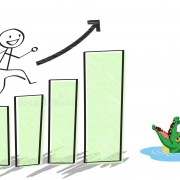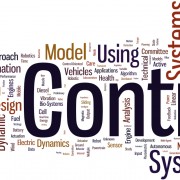Spending less is more valuable than earning more….
Let’s start with a handful of truths:
- You need to spend more to earn more, but it is incremental such as…
- When you go beyond the exponential benefit (spending $1 extra to earn $2 more,)
- When you move into the realm of linear benefit (Earning $1 for each $1 you spend,)
- When you push on and find yourself in a negative benefit (each $1 spent earns less than $1 return)……we may have reached the beginning of the end.
- Earning more leads to spending more.
- In what is our “consumer society,” we are driven to spend more.
Ok, so let’s expand a bit for some clarity.
Spending more to earn more applies to your crop inputs.
Does investing in a $200/ac fertility plan earn you more than $200/ac above what you’d earn without any fertilizer? Of course it does. How much more…have you figured it out?
If spending $20/ac on fungicide can earn an extra $60/ac in revenue, it’s a no brainer. Can it? If you expect to yield 40bu/ac on a wheat crop, will that $20 fungicide earn you a $1.50/bu premium? What’s the spread between #2 and Feed? If it is $1.50/bu or less, why invest in the fungicide?
When we earn more, we spend more. It’s just the way it is. Does it have to be this way? No, of course not, but in our consumer society where we need instant gratification, usually achieved with retail therapy, our consumerism appetite is nearly insatiable. We’re all guilty of this to some extent…even me.
The title, “Spending less is more valuable that earning more” is a line I read in an Op/Ed piece and that line is attributed to Andrew Tobias from his book The Only Investment Guide You’ll Ever Need. I have not read Tobias’ book, so I cannot offer anything on his intention or his message. What I can do is share some of my perspectives on the realities of how we spend.
- “I just got a raise, so let’s go out for supper. I’ve never had escargot before, but hey, I’m earning more now, so why not?”
- “We just closed that deal and it will put me over the top for the bonus I’ve been waiting on. I’ve had my eye on that Ferrari for so long…paying off my line of credit can wait until next bonus!”
- “Wow, we’ve had a banner year! We’ve never seen this kind of cash flow before! Interest rates are so low. I bet I could get a deal on a new <shop/tractor/combine/etc.>
From my days at the bank, I saw a client pay approximately 10-15% more than market price for land, and then 1 year later, pledge to buy a brand new combine with cash. At the time, their working capital was adequate, not especially strong, but it was adequate. They were prepared to use up all of their working capital to buy this new combine because they had a strong year (and felt that many strong years were to come.) I gave them good advice: do not use up your cash to acquire a depreciating capital asset. As a thankyou, they didn’t even give me the loan (they went to another lender.) The very next year, they got hammered with excess moisture and were a breath away from getting all their loans called. Imagine if they hadn’t taken good advice!
Early in my banking career, I heard a grizzled old banker say “Farmers hate having money in the bank; as soon as it’s there, they spend it!” Recently, I listened to a very progressive farmer admit to keeping a set balance in his operating account by shifting excess cash out to a savings account. His rationale: if I don’t see it I won’t spend it; I know it’s in another account, but I don’t track it like my operating account so it’s not available to spend on something I really didn’t need!”
Beautiful!
In our chase to “earn more” we can easily get caught in a cycle of working harder & longer, and investing (spending) more in our business in an effort to boost revenues. Yet the tradeoff of return versus investment must be considered. Investment isn’t just monetary.
Just the other day, I was talking with a client who is considering adding an enterprise to his farm. (For the sake of confidentiality, I won’t give more detail than that.) This new enterprise would very likely bring significant positive cash flow to his farm and family, with very manageable new debt required for equipment to perform the work. He is a strong relationship marketer from previous work outside of farming, so “business development” isn’t a risk for him. The question I asked, the question he couldn’t yet answer, was, “How much time are you prepared to take from your farm and your family for this venture?” His investment wildcard is “time.”
Direct Questions
We’ve discussed ROA and ROI in the past. How are you implementing a reasonable “return” for your investment in inputs, assets, and time?
How would you feel to have 1/10th of your net worth sitting in the bank as cash? That’s $1million in cash on a $10million net worth. Would that burn a hole in your pocket, or give you a calm and serene sense of security?
Where is your mindset when it comes to generating profit: is it from increasing revenue or decreasing expenses…or both?
From the Home Quarter
Andrew Tobias has received many accolades for his writing, and he was the one who wrote “Spending less is more valuable than earning more.” If that applies in a practical sense or not, we could argue all day by bringing up economies of scale, leverage, and tax rates. I am contending that it applies to a mindset of earning a profit and hanging on to it, building those retained earnings, establishing that “war chest,” and setting yourself and your business up for riding out the rough spots in the economic cycles.
Taking all your profit from the last go-round and reinvesting it all on the next one has a place.
It’s called a casino.












Trackbacks & Pingbacks
[…] we make more, we spend more (despite a contrarian strategy discussed here on May 17, 2016 – Spending Less is More Valuable than Earning More.) As farm incomes rose, so did farm expenses; what used to be “nice to have but could live […]
[…] Costs When we make more, we spend more (despite a contrarian strategy discussed here on May 17, 2016 – Spending Less is More Valuable than Earning More.) As farm incomes rose, so did farm expenses; what used to be “nice to have but could live […]
[…] may recall reading Spending Less is More Valuable Than Earning More in this commentary a few months ago. I regularly read comments in ag publications and on Twitter […]
Leave a Reply
Want to join the discussion?Feel free to contribute!